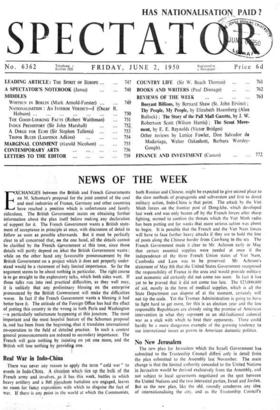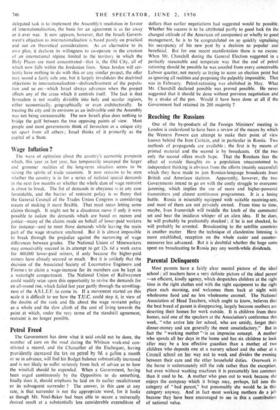No New Jerusalem
The new plan for Jerusalem which the Israeli Government has submitted to the Trusteeship Council differs only in detail froln the plan submitted to the Assembly last November. The main change is that the limited authority conceded to the United Nations in Jerusalem would be derived exclusively from the Assembly, and not subject to local agreements negotiated on the spot between the United Nations and the two interested parties, Israel and Jordan. But as the new plan, like the old, roundly condemns any idea of internationalising the city, and as the Trusteeship Council's delegated task is to implement the Assembly's resolution in favour of internationalisation, the basis for an agreement is as far away as it ever was. It now appears, however, that the Israeli Govern- ment's objection to internationalisation is based purely on practical and not on theoretical considerations. As an alternative to its own plan, it declares its willingness to co-operate in the creation of an international regime limited to the territory in which the Holy Places are most concentrated—that is, the Old City, all of which now falls within the Jordanian lines. Since Jordan will cer- tainly have nothing to do with this or any similar project, the offer may sound a fairly safe one, but it largely invalidates the doctrinal objections to internationalisation—disfranchisement of the popula- tion and so on—which Israel always advances when the project affects any of the areas which it controls itself. The fact is that Jerusalem is not readily divisible into holy and secular regions, either economically, geographically or even architecturally. In treating the city and its environs as an indivisible unit the Assembly was not being unreasonable. The new Israeli plan does nothing to bridge the gulf between the two opposing points of view. Most people and most governments think of Jerusalem as a unique city set apart from all others ; Israel thinks of it primarily as the capital of a State.



































